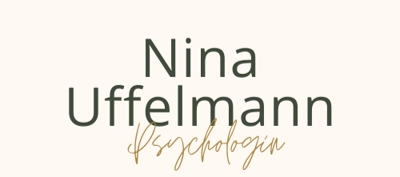My last supervision session focussed on the topic of core beliefs. They play a central role in our mental health, our personal development and the way we go through life. But what exactly are core beliefs and why do they have such an impact on us?
What are core beliefs?
Core beliefs are deeply rooted convictions about ourselves, other people or the world. They often have an unconscious effect and shape how we perceive and evaluate situations. These beliefs can originate from our childhood, develop through social influences or individual experiences.
Examples of core beliefs:
-
Self-orientated: ‘I am competent’ or ‘I am not good enough’
-
Relationship-related: ‘People are trustworthy’ or ‘Others will leave me’
-
World-related: ‘Life is beautiful’ or ‘The world is dangerous’
How do core beliefs develop?
Core beliefs are often formed early in life. Experiences with our caregivers have a strong influence on us: a child who experiences abuse may believe that it is their own fault because it would be too threatening to recognise that a loved one is doing wrong. This can lead to beliefs such as ‘I am bad’ or ‘There is something wrong with me’.
Social norms and cultural values also influence us. Those who grow up in a performance-orientated society may develop the belief: ‘I am only valuable if I achieve something.’ These deeply rooted beliefs often operate in the background and influence our behaviour and feelings.
How do beliefs influence your life?
Beliefs act like invisible glasses through which you see the world. Imagine you're on a date and you harbour the belief ‘I'm unlovable’. This belief could make you feel insecure, anxious and withdrawn. If you thought ‘I am lovable’, you would probably approach the situation in a more open and relaxed way.
Hindering vs. helpful core beliefs:
-
Helpful core beliefs motivate you to do things that are important to you and support you in creating the life you want.
-
Hindering core beliefs hold you back and reinforce negative feelings or behaviour patterns.
How can you recognise and change obstructive core beliefs?
There are various methods for identifying and defusing obstructive core beliefs:
-
Reflection: Observe the situations in which you experience strong emotions or fall into recurring patterns. What do you think in these moments? Write down your thoughts or talk about them with a trusted person. Sometimes it helps to deepen this reflection with professional support in order to recognise blind spots.
-
Mindfulness: Practise mindfulness to become more aware of the thoughts and beliefs that accompany you in your everyday life. Empathetic guidance from an experienced psychologist can help you to integrate mindfulness practices into your everyday life in a targeted way.
-
Defusion: Within Acceptance-Commitment-Therapy (ACT) , you learn to look at obstructive core beliefs from a certain distance instead of identifying with them completely. This method helps you to reduce the influence of these beliefs. For example, you could consciously say a stressful sentence out loud or write it down and think about how you could look at it differently. In a session with me, we can try out together which techniques work for you to gain distance.
-
Work with values: Your values serve as a compass for your life. Think about which values are really important to you - perhaps these are compassion, courage or authenticity. Ask yourself: What things do I want to say to myself in order to live my values? These can be short phrases such as ‘I can do it’ or ‘go get it’.
Core beliefs can therefore have enormous power - restricting us, but also strengthening us. The first step is to recognise them and consciously question them. What are your beliefs? Do they hold you back or do they support you?
Experiences of my client Linda (33 years old): ’I was suddenly able to reflect on myself and the events, I recognised my patterns as soon as they emerged and was able to react better to situations and difficult thoughts thanks to this realisation. I am now able to approach situations with distance and more rationally and only very rarely question my own worth. '
Would you like to find out which beliefs characterise your life and how you can let go of obstructive convictions? In my psychological counselling, I support you in recognising and changing these patterns. Sign up for an initial consultation - together we will find your way to more clarity and self-confidence.

